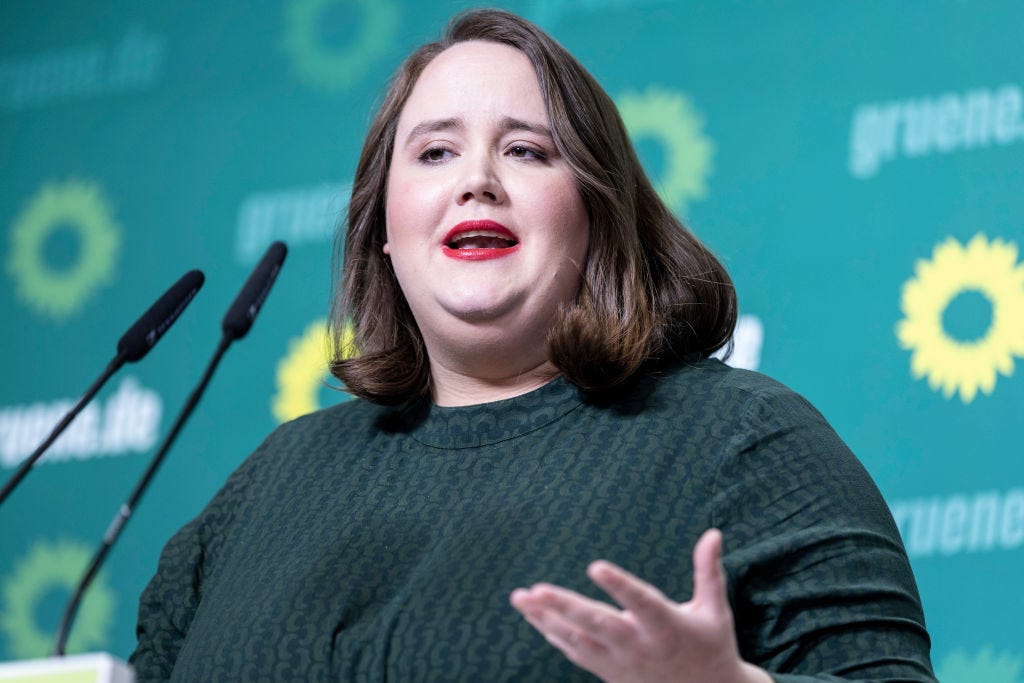"Finding something like courage": an inside look at the German uprising against the far right
A leader of German progressives on why a grassroots pro-democracy movement is blooming in her country, how to combat apathy, and how to empathize with voters hooked by extremism in order to flip them
Wondering why people rage agains right-wing attacks on their freedoms but also feel like there’s nothing they can do about it — and so don’t?
We’ve been asking why no big grassroots pro-democracy movement has emerged in the U.S., even as the right has so successful in fighting against democracy. And that’s why we’ve been watching with a lot of excitement as just such a movement for democracy does seem to be on the rise — in Germany.
In January, Correctiv, a German independent investigative journalism site, revealed that a delegation from Germany’s right-wing Alliance for Germany (AfD) party had met with fascist organizers to plan massive deportations — not just of immigrants, but of naturalized German citizens — if the AfD were to take power nationally. The news kicked off a nationwide wave of protests against the AfD and in favor of immigrants and democracy, and that wave is ongoing. Nearly two million turned out on the first big weekend in mid-January, and tens of thousands of protesters (some 50,000 this past weekend in Hamburg alone) have been in the streets every week in cities across Germany.
To see what kind of pressure a mass movement like this one can put on a country’s elected leaders, we reached out to German Member of Parliament Ricarda Lang, co-chair of Alliance 90/The Greens, the progressive partner in Germany’s current governing coalition.
Lang, the youngest leader in Green Party history, told us about what the protests look like from inside Germany’s left establishment, what political leaders actually think about the people’s demands (and how likely they are to give the people what they want), and what progressives in Germany and the U.S. can learn from one another as they fight right-wing extremists in a political war that’s gone international.
We first talked in January as these huge nationwide demonstrations were beginning; those are still happening, they’re still very large, and they’ve already had some effect on elections. From your perspective as a leader in the governing coalition, what has the impact of the protests really been?
I think there has been a debate within the progressive movement in Germany on what is the aim of this, and what is it going to have as a real consequence, because I don't think it works as easily as just getting more people out and then Alternative for Germany magically going down in the polls (though their numbers have gone down a little bit).
So, in my opinion, three things are happening:
First of all, people who believe in democracy and are willing to stand up for democracy are getting mobilized again. They are finding something like courage and standing up for what they believe in. I think in Germany there has been this fatalistic feeling, "Oh, I think it's horrible what is happening, but there's nothing I can do about it."
But what is coming out of the demonstrations — even though I would not say this is a single, unified new movement because it's too broad — is that the climate-protection people, the people who work in science, the people who work in progressive programs, they're getting organized again. And they're saying, "Now we're doing this." It's a mobilization of people who believe in democracy.
Secondly, I think it's been made very clear for the conservative parties that the majority of the people in the country do not want them to work with right extremists. Especially as we are looking towards the elections in the east of Germany. I think the discourse for the conservatives will really change — if any of them are still thinking, “Maybe we could open ourselves up to this…”, I think it's been a really clear stop sign.
And the third part, looking towards the European elections this year, is the mobilization of non-voters. Because we have in Germany a situation where, especially at European elections, the voting quota is not very good. Studies suggest there's 30 to 40 percent stay-at-home progressives — they say they're willing to vote for a progressive party but they are not going out to vote. So I think this movement is also really, in this super-election year, about getting out the vote of people that will vote democratically.





